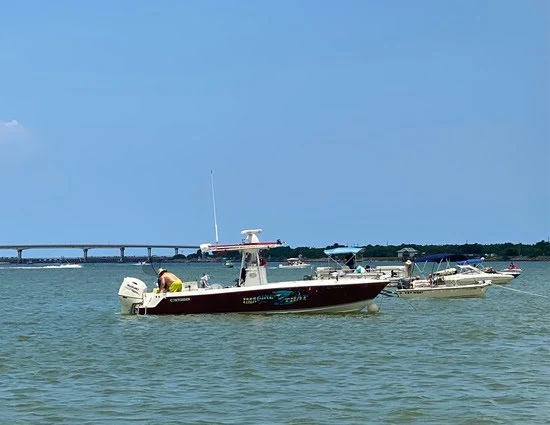One of the essential jobs of a game warden is to enforce the wildlife laws and regulations of the state in which they work. In order to do this job, they occasionally will search through your property, such as your boat.
But can a game warden search your boat, legally? Read on below to find out.
Table of Contents
- Can A Game Warden Search Your Boat Without A Warrant?
- Can a Game Warden Search Your Cooler?
- Can a Game Warden Confiscate Your Boat?
- Can a Game Warden Inspect Your Boat?
- What to do if a Game Warden Searches your Boat
- Related Posts
Can A Game Warden Search Your Boat Without A Warrant?
A game warden can indeed search your boat without a warrant. In many states, game wardens have the ability to search your boat if they reasonably believe that you are engaged in a regulated outdoor activity like fishing. They can then inspect any container, device, or vehicle that is used to hunt, fish, or otherwise collect a wildlife resource.
Although most game wardens in a majority of the states also function as peace officers, they do have more search authority than your traditional police officer.

The Fourth Amendment protects you from unreasonable searches and seizures, but a game warden can search your belongings if you are participating in managed outdoor activities.
The authority that a game warden has to search your boat will vary from state to state. And most of the time, they will ask your permission before they search.
This could include any of your belongings in addition to your boat, including freezers, coolers, bags, or anything else you may have on board.
Can a Game Warden Search Your Cooler?
In most states, a game warden does have the authority to search through your cooler if they believe that you have been participating in a regulated outdoor activity such as fishing. Coolers are obvious places for a warden to search, as this is generally where any fish will be kept after they are caught.
A game warden can search anything that pertains to outdoor activities that they regulate.
This could mean checking the plug in a shotgun, analyzing ammunition for illegal lead rounds, or searching through your cooler for illegally caught fish.
Can a Game Warden Confiscate Your Boat?
Game wardens are powerful members of the law because they can search people more easily than a regular police officer. If you appear to be recreating as it relates to wildlife, they can generally search you and your belongings (even on private property).
With that being said, they will tend to only look for illegal activity or misconduct pertaining to boating safety, operating a vessel, and wildlife-related laws.
If you are found to be breaking the law when it comes to wildlife, a game warden can lawfully confiscate your boat. They also can confiscate any other gear or equipment used to commit the crime, including fishing poles, traps, vests, or other vehicles.
If they stumble upon something else illegal (not pertaining to wildlife), they still retain the power to confiscate a boat if the need arises.
Most game wardens are also peace officers, so they have the authority to enforce regular laws outside of anything related to wildlife.
Can a Game Warden Inspect Your Boat?
Game wardens have many responsibilities, but they are perhaps most well known for enforcing wildlife laws and regulations out in the field.
This can include many things, such as checking licenses and tags, confirming bag limits, and investigating potential infractions of the law.
One of the duties of a game warden is to inspect any boats that are participating in wildlife activities. Game wardens can inspect, search, and even confiscate a boat depending on the situation and what laws are being broken.
What to do if a Game Warden Searches your Boat
First and foremost, remember that a game warden has the right to search your vessel. If you cooperate, show respect, and follow the officer’s instructions there should not be any issues.
If you find yourself in a situation where your boat is pulled over and searched by a game warden, don’t panic. Here are some general guidelines to follow.
- As soon as possible, slow down your vessel and pull over to a safe location (failure to stop could result in fines or even an arrest).
- If you have fishing lines out reel them in so the officer may approach safely.
- Listen to the officer’s instructions, they will typically either ask you questions or board your vessel.
- Be prepared to show your driver’s license, boaters license, fishing license, or some form of identification.
- Have your boating safety equipment out and ready for inspection. Depending on the size of your vessel this may include the required life jackets, throwables, signaling device, fire extinguisher, etc.
Today recreational boating is more popular than ever. It is not uncommon to have your vessel checked by a game warden. In most cases, this is simply a standard safety inspection.
Remember, game wardens and wildlife officers are public servants tasked with keeping you and your family safe on the water or in the woods.
You May Also Like: Can a Wildlife Officer Pull You Over?






